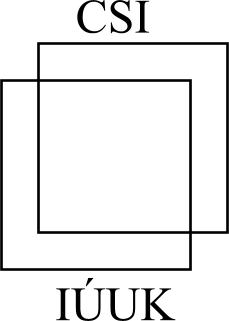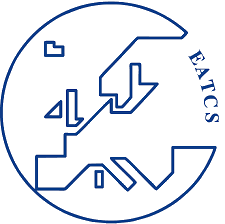
Submissions and Proceedings
ICALP proceedings are published in the Leibniz International Proceedings in Informatics (LIPIcs) series. This is a series of high-quality conference proceedings across all fields in informatics established in cooperation with Schloss Dagstuhl - Leibniz Center for Informatics. LIPIcs volumes are published according to the principle of Open Access, i.e., they are available online and free of charge.
Submission server is now closed.
Submission Guidelines
Authors are invited to submit an extended abstract of no more than 12 pages, excluding references presenting original research on the theory of computer science. All submissions must be formatted in the LIPIcs style and submitted via Easychair to the appropriate track of the conference. The use of pdflatex and the LIPIcs style are mandatory: papers that deviate significantly from the required format may be rejected without consideration of merit.
For regular submissions, no prior publication or simultaneous submission to other publication outlets (either a conference or a journal) is allowed. All the technical details necessary for a proper scientific evaluation of a submission must be included in the 12-page submission or in a clearly-labelled appendix, to be consulted at the discretion of program committee members. If desired, the authors can simply attach a copy of the full paper as the appendix. Authors are encouraged to also make full versions of their submissions freely accessible in an on-line repository such as ArXiv, HAL, ECCC.
A submission for a brief announcement must be at most 3 pages, including title, authors' names and affiliations, and references. Such submissions may describe work in progress or work presented elsewhere. The title of a brief announcement must begin with the words "Brief Announcement:". Brief announcements will be included in proceedings and also presented during the conference with a shorter time slot.
If requested by the authors at the time of submission, a regular submission that is not selected for a regular presentation will be considered for the brief announcement format. This will not affect consideration of the paper for a regular presentation.
Best Paper Awards
As in previous editions of ICALP, there will be best paper and best student paper awards for each track of the conference. In order to be eligible for a best student paper award, a paper should be authored only by students and should be marked as such upon submission.
Topics
Papers presenting original research on all aspects of theoretical computer science are sought. Typical but not exclusive topics of interest are:
Track A: Algorithms, complexity and games
- Algorithmic Game Theory
- Approximation Algorithms
- Combinatorial Optimization
- Combinatorics in Computer Science
- Computational Biology
- Computational Complexity
- Computational Geometry
- Cryptography
- Data Structures
- Design and Analysis of Algorithms
- Machine Learning
- Parallel, Distributed and External Memory Computing
- Randomness in Computation
- Quantum Computing
Track B: Logic, semantics, automata and theory of programming
- Algebraic and Categorical Models
- Automata, Games, and Formal Languages
- Emerging and Non-standard Models of Computation
- Databases, Semi-Structured Data and Finite Model Theory
- Principles and Semantics of Programming Languages
- Logic in Computer Science, Theorem Proving and Model Checking
- Models of Concurrent, Distributed, and Mobile Systems
- Models of Reactive, Hybrid and Stochastic Systems
- Program Analysis and Transformation
- Specification, Refinement, Verification and Synthesis
- Type Systems and Theory, Typed Calculi
Track C: Foundations of networked computation: Models, algorithms and information management
- Algorithmic Aspects of Networks and Networking
- Formal Methods for Network Information Management
- Foundations of Privacy, Trust and Reputation in Networks
- Mobile and Wireless Networks and Communication
- Network Economics and Incentive-Based Computing Related to Networks
- Networks of Low Capability Devices
- Network Mining and Analysis
- Overlay Networks and P2P Systems
- Specification, Semantics, Synchronization of Networked Systems
- Theory of Security in Networks
Should I submit my paper to Track A or Track C?
While the scope of Tracks A and B are generally well understood given their long history, the situation for Track C may be less obvious. In particular, some clarifications may be helpful regarding areas of potential overlap, especially between Tracks A and C.
The aim for Track C is to be the leading venue for theory papers truly motivated by networking applications, and/or proposing theoretical results relevant to real networking, certified analytically, but not necessarily tested practically. The motivation for the track was the lack of good venues for theory papers motivated by applications in networking. On the one hand, the good networking conferences typically ask for extended experiments and/or simulations, while the TCS community is hardly able to do such experiments or simulations. On the other hand, the good conferences on algorithms tend to judge a paper based only on its technical difficulty and on its significance from an algorithmic perspective, which may not be the same as when judging the paper from the perspective of impact on networks.
Several areas of algorithmic study of interest to track C have a broad overlap with track A. Graph algorithmics can belong in either, though if the work is not linked to networking, it is more appropriate in track A. Algorithmic game theory is another area of major overlap. Aspects involving complexity, the computation of equilibria and approximations, belong more in Track A, while results with applications in auctions, networks and some aspects of mechanism design belong in Track C.
Finally, it should be noted that algorithms and complexity of message-passing based distributed computing belong squarely in track C, while certain other aspects of distributed computing do not fall under its scope.




